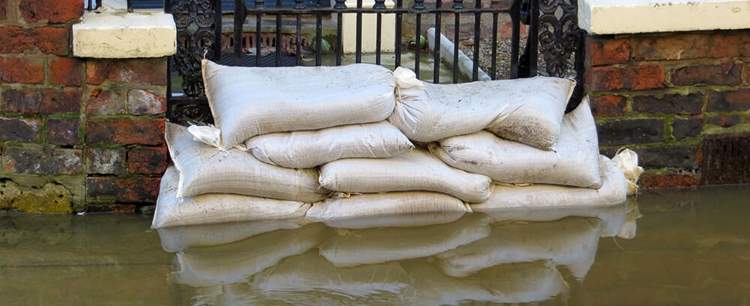If you’re unfortunate enough to experience flood damage, then you’ll probably be contacted fairly quickly by someone called a “loss adjuster”.
Here’s a quick overview of their role.
Major flooding
When a major flood occurs, severe damage is often the outcome – even when warnings are issued in advance.
Typically many properties, civil, commercial and private, are likely to be affected and people need to react fast.
The prime concern is, of course, safety. So, the emergency services will in many cases be amongst the first to the scene and may recommend or require things like evacuation.
Once it’s clear that everyone is safe, the next top priority will be to restore things to as near normal as possible.
That may involve both work and expense for insurance policyholders. Understandably, they’ll expect their insurance provider to react as quickly as possible to help and the first visible face-to-face sign of such assistance is the “loss adjuster”.
The role
There is a widespread misconception that the loss adjuster’s role is to try and keep the claim levels down as low as possible for the insurer.
In fact, professional loss adjusters never arrive after a flood with cost-management as their primary objective. They are there as the insurance provider’s on-site presence and their main purpose is to help policyholders to resolve the problems the flood has caused to their property and their lives.
Some of their advice may be based upon local knowledge and an understanding of the wider flood effects. For example, they may be able to help you to find emergency tradespeople to come in and check that electrical and gas appliances are still operating safely.
Their focus is to help you get your life back to normal as fast as possible. In that capacity, they’re able to leverage widespread support services both from the insurer and sometimes other sources too.
They are also there to help you progress your claim as fast and efficiently as possible. Their intention is to finalise and settle things to your satisfaction, including agreeing and facilitating any final claim settlement payments.
The claim value
This is the area of a loss adjuster’s role that is typically the most misinterpreted and misunderstood.
All insurers have a professional duty towards all of their policyholders and that includes making sure that their funds (the premium we all pay for our insurance) are handled responsibly. Their duty extends to policyholders who have made a claim – but also to those who have not.
It is therefore in all our interests that our insurance providers:
- ensure that claims are settled on a just basis whilst making the best professional use of their funds. For example, loss adjusters may look to service providers to submit cost-effective and competitive estimates and quotations for putting right the damage caused by a flood, rather than simply paying out any sum such providers might demand. As it is our money they’re using, we would expect and require them to do so;
- question claims that appear excessive, disproportionate or not in line with the policy’s conditions;
- investigate claims that may be fraudulent.
All these functions typically constitute a small percentage of a loss adjuster’s role but when they’re seen, the motivation behind them is often misconstrued. In reality, it is about behaving responsibly with our money and not about trying to somehow “squeeze down” legitimate claim values.
As part of flood damage assessment, a loss adjuster might be as likely to suggest more work and therefore cost to the insurer, as they are to question an item of expenditure!
So, hopefully this has clarified aspects of their role and put your mind at rest. You have nothing to fear from the appointed loss adjuster!







